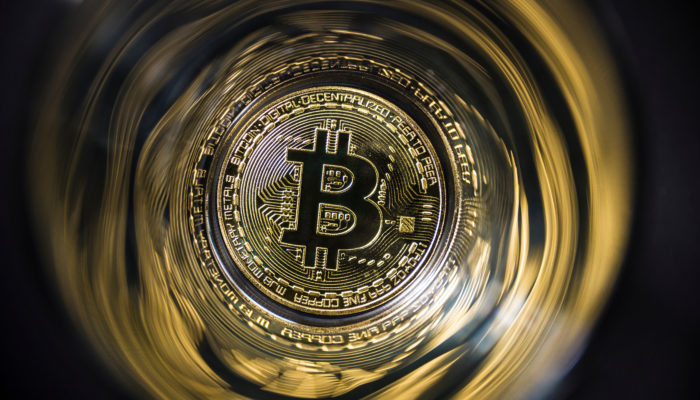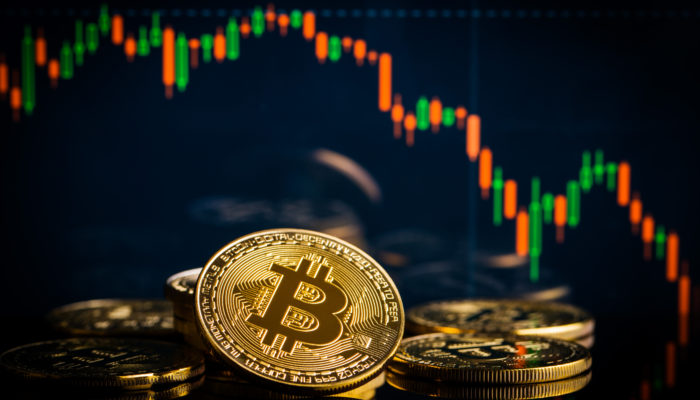
Brad Garlinghouse, chief executive officer of crypto currency company Ripple, says he’s worried Facebook’s plans to enter the arena with its Libra digital coin will provoke harsher regulation of the entire sector.
“You just want to make sure that you don’t get caught in the crossfire,” Garlinghouse said in an interview with Fortune in London on Thursday. “It is important to me that when regulators start asking questions that they don’t lump us into one big bucket.”
Garlinghouse said he was alarmed when U.S. President Donald Trump took to Twitter on July 11 and, in response to Facebook’s decision to launch Libra, tweeted his opposition to cryptocurrencies, saying they could “facilitate unlawful behavior.”
I am not a fan of Bitcoin and other Cryptocurrencies, which are not money, and whose value is highly volatile and based on thin air. Unregulated Crypto Assets can facilitate unlawful behavior, including drug trade and other illegal activity….
— Donald J. Trump (@realDonaldTrump) July 12, 2019
“It’s like saying I’m not a fan of Internet companies,” Garlinghouse said of Trump’s tweets. “There are lots of different types of Internet companies.”
San Francisco-based Ripple offers banks and other financial institutions a way to make low-cost international payments and settle cross-border transactions using a digital coin called XRP. It says it is currently being used by more than 200 financial firms globally. In June, Ripple also announced a tie-up with money transfer company Moneygram.
Garlinghouse said that last year “billions of dollars of transactions” were transmitted over Ripple’s network, and that the amount is doubling every quarter.
In previous interviews, Garlinghouse had seemed more enthusiastic about Libra. For instance, in an interview at Fortune Brainstorm Finance conference in June, he said ought to send David Marcus, the Facebook executive in charge of Libra, a case of champagne. The social media giant’s announcement, Garlinghouse said, had helped legitimize cryptocurrency-based products and prompted a record number of financial institutions to sign contracts to start using XRP for international payments.
“It has been a massive call to action,” Garlinghouse said in June. “The banks realize that if Facebook is going to be a competitor in this space they can’t depend on a technology like SWIFT to compete in the marketplace.” SWIFT is an electronic messaging network that banks have used since 1977 to settle international money transfers.
Of course, Garlinghouse was speaking before Trump’s anti-crypto tweet storm. It was also before a July 16 U.S. Senate Banking Committee hearing on Facebook’s Libra plans at which senators from both parties expressed deep misgivings with the project, ranging from potential for fraud to privacy violations to the effect Libra might have on monetary policy.
In addition, U.S. Treasury Secretary Steven Mnuchin and Jerome Powell, the head of the U.S. Federal Reserve, have also both said they have “serious concerns” about Libra.
Garlinghouse said that worries about money laundering and other criminal activity using cryptocurrencies should not apply to Ripple’s XRP. Transfers over Ripple’s network can only be made by regulated financial institutions, which already have to comply with anti-money laundering and know-your-customer rules, irrespective of the method they use to make cross-border payments.
Copyright © 2023 iCryptome.com
- Nordea Wins Danish Court Battle to Ban Staff Trading in Bitcoin
- Responding to The Motley Fool’s Anti-Bitcoin Article
- Blockchain.com Introduces Margin Trading
- BTC’s Sudden $400 Drop Could Be Setting Up Bitcoin Bear Trap, Claims Analyst
- Drastic Shift in Sentiment in Crypto After Bitcoin Surges: Technical Indicators Point Toward a Rally

















